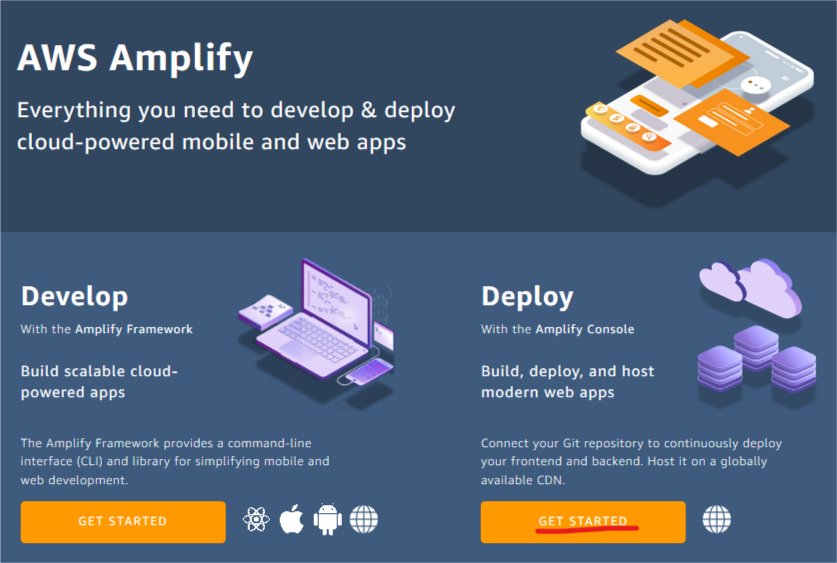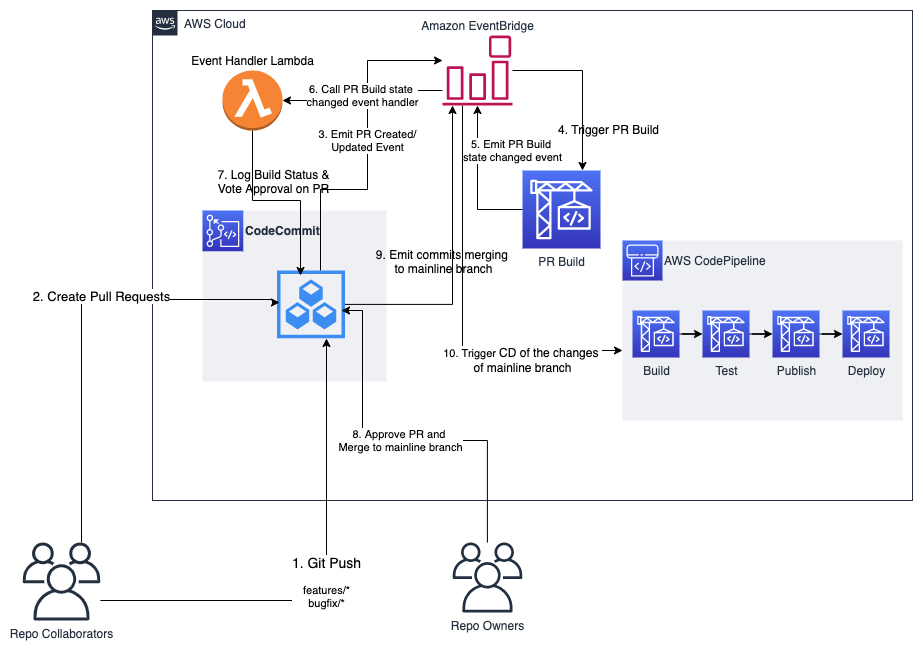AWS DevOps & Developer Productivity Blog
Category: AWS CodeCommit
Use AWS CodeCommit to mirror an Azure DevOps repository using an Azure DevOps pipeline
AWS customers with Git repositories in Azure DevOps can automatically backup their repositories in the AWS Cloud using an AWS CodeCommit repository as a replica. By configuring an Azure DevOps pipeline, the source and replica repositories can be automatically kept in sync. When updates are pushed to the source repository, the pipeline will be triggered […]
Hackathons with AWS Cloud9: Collaboration simplified for your next big idea
Many organizations host ideation events to innovate and prototype new ideas faster. These events usually run for a short duration and involve collaboration between members of participating teams. By the end of the event, a successful demonstration of a working prototype is expected and the winner or the next steps are determined. Therefore, it’s important […]
Building end-to-end AWS DevSecOps CI/CD pipeline with open source SCA, SAST and DAST tools
DevOps is a combination of cultural philosophies, practices, and tools that combine software development with information technology operations. These combined practices enable companies to deliver new application features and improved services to customers at a higher velocity. DevSecOps takes this a step further, integrating security into DevOps. With DevSecOps, you can deliver secure and compliant […]
Agile website delivery with Hugo and AWS Amplify
In this post, we show how you can rapidly configure and deploy a website using Hugo (an AWS Cloud9 integrated development environment (IDE) for content editing), AWS CodeCommit for source code control, and AWS Amplify to implement a source code-controlled, automated deployment process. When hosting a website on AWS, you can choose from several options. […]
Integrating AWS CloudFormation Guard into CI/CD pipelines
In this post, we discuss and build a managed continuous integration and continuous deployment (CI/CD) pipeline that uses AWS CloudFormation Guard to automate and simplify pre-deployment compliance checks of your AWS CloudFormation templates. This enables your teams to define a single source of truth for what constitutes valid infrastructure definitions, to be compliant with your […]
Complete CI/CD with AWS CodeCommit, AWS CodeBuild, AWS CodeDeploy, and AWS CodePipeline
Many organizations have been shifting to DevOps practices, which is the combination of cultural philosophies, practices, and tools that increases your organization’s ability to deliver applications and services at high velocity; for example, evolving and improving products at a faster pace than organizations using traditional software development and infrastructure management processes. An integral part of […]
Federated multi-account access for AWS CodeCommit
As a developer working in a large enterprise or for a group that supports multiple products, you may often find yourself accessing Git repositories from different organizations.
Scalable agile development practices based on AWS CodeCommit
Development teams use agile development processes based on Git services extensively. AWS provides AWS CodeCommit, a managed, Git protocol-based, secure, and highly available code service. The capabilities of CodeCommit combined with other developer tools, like AWS CodeBuild and AWS CodePipeline, make it easy to manage collaborative, scalable development process with fine-grained permissions and on-demand resources.
Automated CI/CD pipeline for .NET Core Lambda functions using AWS extensions for dotnet CLI
The trend of building AWS Serverless applications using AWS Lambda is increasing at an ever-rapid pace. Common use cases for AWS Lambda include data processing, real-time file processing, and extract, transform, and load (ETL) for data processing, web backends, internet of things (IoT) backends, and mobile backends. Lambda natively supports languages such as Java, Go, […]
Building and testing iOS and iPadOS apps with AWS DevOps and mobile services
Continuous integration/continuous deployment (CI/CD) helps automate software delivery processes. With the software delivery process automated, developers can test and deliver features faster. In iOS app development, testing your apps on real devices allows you to understand how users will interact with your app and to detect potential issues in real time.









